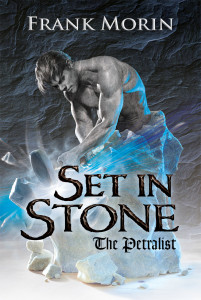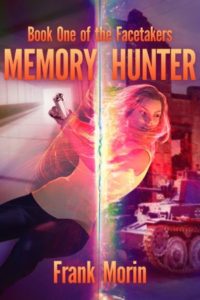(This post was featured on Fictorians on June 19th. All last month, we talked about small presses and publishing. Check out this post there, along with the other great Fictorians posts last month)
I started writing over a dozen years ago, when indie publishing wasn’t really a viable option. The flood of services, tools, and channels available now is astonishing and exciting.
At first I didn’t care.
Like many new writers, I was convinced my first book was ‘The Next Big Thing’, and only a huge deal with a big traditional publisher would do.
Yeah, good luck with that.
My writing has improved since then, as has my understanding of what it means to publish, and what this journey really means. After logging my dozens and dozens of rejections, slogging through a really painful experience with an agent that wasted three years I could have been releasing books, and with the markets changing so much, I finally realized what I had to do.
Time to indie publish.
I love the fact that there are so many options today: traditional deals with big publishers, deals with small presses, pure indie publishing, and hybrid options. The market is changing, and we need to be open minded and flexible to keep up.
For me, it made sense to indie publish. I had several novels complete, and honestly that turned out to be a good thing. My writing improved a lot through those novels, and I’ve since gotten very good at rewrites and edits. They are your friend.
 I released Set in Stone, book one of my fun YA fantasy series, The Petralist, in May of 2015. The past two years have been hectic and busy and fun. It’s quite a journey, and indie-publishing is not for the faint of heart, but it is very accessible for those willing to learn to wear a lot of hats. Here are a few of the top things I’ve learned indie-publishing:
I released Set in Stone, book one of my fun YA fantasy series, The Petralist, in May of 2015. The past two years have been hectic and busy and fun. It’s quite a journey, and indie-publishing is not for the faint of heart, but it is very accessible for those willing to learn to wear a lot of hats. Here are a few of the top things I’ve learned indie-publishing:
- Quality first. Many people beat the drums of Publish Fast, and there is some truth to what they say. To build an audience, new writers can’t set a publishing schedule like George R.R. Martin. But most new authors are in a rush to get their book out, and that rush can lead to cutting corners. Don’t be one of those authors who spent so much energy to get a book to 90%, only to skip the effort to really finish it and make it amazing.
- A good editor is worth every penny. We may not have big budgets, but we all have blind spots. Don’t self-edit. Better to burn your manuscript over a fire. At least that way, you might get a S’More out of it. And don’t ask your cousin who once took a college English class to check it over, or ask your grandmother what she thinks. I write big books, so they’re expensive to edit, but it simply has to be done. You wouldn’t build a house, but skip all the finish work inside. Don’t do it to your book.
 Invest in a Good Cover. Everyone judges a book by its cover. Clip art or badly photoshopped images are a disservice to your book. There are many great places to get covers, and this is another item that is absolutely worth the investment.
Invest in a Good Cover. Everyone judges a book by its cover. Clip art or badly photoshopped images are a disservice to your book. There are many great places to get covers, and this is another item that is absolutely worth the investment.- Indie publishing is a business. We all love sitting in a coffee shop or hiding in our closet with our laptops, typing away and bringing our stories to life. That’s the writing. We also have to edit, revise, manage social media connections, monitor finances, hire editors, cover designers, figure out marketing, schedule events, and much more. All those other aspects of publishing are business aspects. Learn the business and learn to treat your intellectual property as an item you are trying to sell, not as a piece of your soul.
- Learn Marketing. Those of us who aren’t marketing people usually hate or fear this word. Marketing is tough, but it’s important. Yes, the most important marketing we do, especially at first, is to write our next book. But that doesn’t mean we can’t begin learning other aspects of marketing. We do want to support ourselves at this one day, so we have to learn to sell.
- Write what you Love. If you don’t enjoy your story, readers won’t either. And by the time you finish rewriting and editing however many times, if you don’t love your story, you’ll end up hating it.
- Become part of the community. Many writers are introverts and we’re content to hide away with our laptops and work everything alone. Don’t. There is a thriving community of people involved in writing and publishing great stories, and I’ve found writers to be some of the nicest, most encouraging, and quick to share advice and experiences than just about any other group. Become part of this community. Learning together is a lot faster than trying to figure it out all alone, and it’s a lot more fun.
- Enjoy the journey. I set a very aggressive publishing schedule for myself when I plunged into indie publishing. It helped motivate me to stay focused, to press ahead through the steep learning curve, and get things done, but it also added a lot of stress on top of existing family, church, and day job responsibilities. I’ve had to remind myself to take a deep breath and look for ways to enjoy every day. This journey is long, sometimes arduous, but it can always be fun.
2 thoughts on “Lessons Learned from Indie Publishing”
Comments are closed.

BEING AN INDIE AUTHOr MYSELF, SO MUCH OF WHAT YOU WRITE I RECOGNIZE. I STILL LEARN EVERY DAY, AND LOOKING BACK AT MY FIRST WORK, I CAN SEE THE THINGS I COULD HAVE DONE BETTER. WHICH MAKES ME WANT TO IMPROVE MYSELF EVERY TIME I WRITE A NEW BOOK. I too HAVE A GROUP OF INDIES GAThERED AROUND ME, EVERY ONE HAS THEIR TALENT, WE HELP EACHOTHER and GET BETTER EVERY DAY. I THINK THAT’S WHAT MAKES THE DIFFERENCE, AND WHY I AM RELUCTANT TO EVER WORK WITH A PUBLISHER. THERE IS SO MUCH FUN IN DOING IT YOURSELF, FIND YOUR OWN PATH, ENJOY AND GROW INTO A BETTER WRITER. THANK YOU FOR YOUR POST, FRANK. I REALY ENJOYED IT!
I’M GLAD THE POST RESONATED FOR YOU. tHANKS FOR SHARING A LITTLE ABOUT YOUR OWN JOURNEY. gOOD LUCK WITH YOUR WRITING!